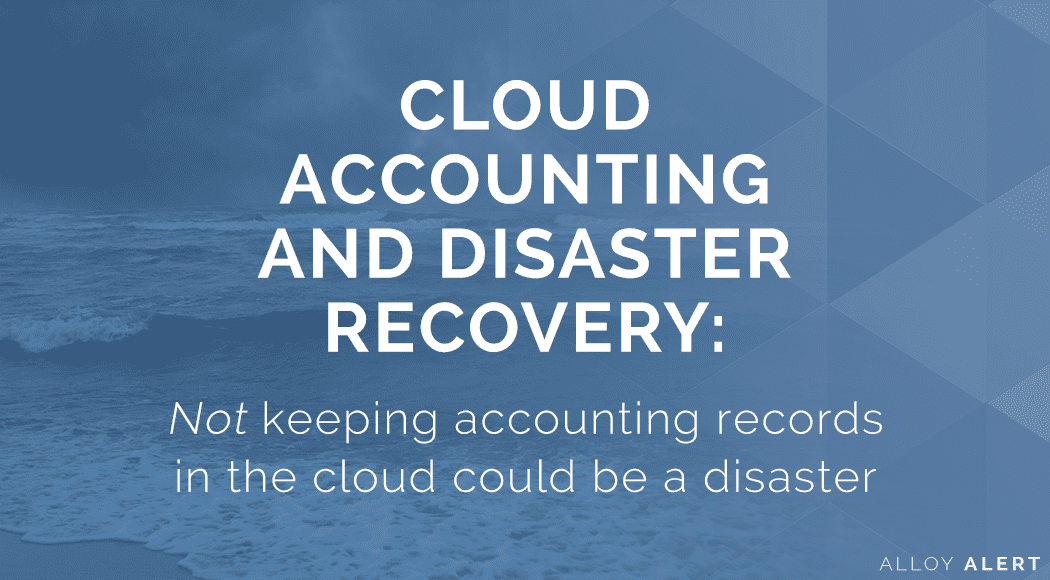

After a disaster like a hurricane or a flood, we often think of the recovery process in terms of physical repairs to damaged property. Businesses, however, must also cope with the recovery of their records.
Accounting records are not simply needed in order to file tax returns. If your office was destroyed, would you know exactly which customers owed you money? Would you know the historical prices charged by your vendors so that you can properly negotiate future prices? Hopefully, you have a recent backup of your computer and the backup was stored in a location that was not damaged. If not, you might have to call all of your vendors and ask for a list of all purchases made for the year. You might need to get copies of all your bank statements and re-enter all the transactions. This type of “after-the-fact” record re-creation could be very time-consuming and potentially somewhat inaccurate.
If all of your accounting records are stored in the cloud, then there is no need for filing cabinets, storage rooms, or off-site record storage companies. More importantly, your records can be accessed from anywhere with an internet connection. This makes is possible to quickly relocate your office while the original location is unusable. The data is current, since most cloud hosts back up all files at least daily. The cloud hosts also prepare for a potential disaster in their own location by also saving the backups in an alternate location.
Absolutely not! We all hope to never experience a disaster. Doing your accounting in the cloud has numerous benefits that can help you every day. Wouldn’t it be nice to have access to your records from home, from your phone, and from your laptop? Having the information at your fingertips no matter where you are allows you to make faster decisions and to keep the business running even when you are out of the office.
A true cloud-based accounting system definitely saves time. Instead of entering each transaction manually, which is required by many desktop software applications, a cloud system can import the transactions as they occur. This can happen in real time. Wouldn’t it be nice to have your business bank account reconciled daily? If individual credit card transactions could be entered automatically, not only would you save time, but you would likely have more detailed and accurate records than you would if your bookkeeper entered everything at once at the end of the month. These are just a few examples of how software automation can make the entire accounting process more efficient.
Collaboration is one of the best features of cloud accounting. Various people can all see the exact same up-to-date records when they need to discuss something. If you have a question for your accountant, you can both be looking at the transactions while you have your conversation. Your accountant can also make adjustments and post journal entries for you, so that the one and only data file is always updated. There is no need to keep separate versions or to remember which one is the “live” file.
There are several really innovative cloud accounting software providers, such as Xero. In addition to the basic general ledger system, there are hundreds of apps that can automate various functions and integrate into the accounting system. Examples are apps to store copies of documents, track employees’ hours, or manage inventory. The beauty is in the fact that your business is unique and you shouldn’t have to settle for a “one size fits all” accounting package.
Moving your accounting into the cloud makes sense for many reasons. Although it will definitely help in the event of a disaster, you will also receive benefits every single ordinary day.
Contact us to get started on upgrading your systems to the cloud →
Learn More About Cloud Accounting
Hurricane Irma and Harvey Support


Associate Partner
Julie has over 20 years of experience in public and private accounting, representing varied clientele including the medical, legal, and real estate industries and trusts.
View Julie's Bio →